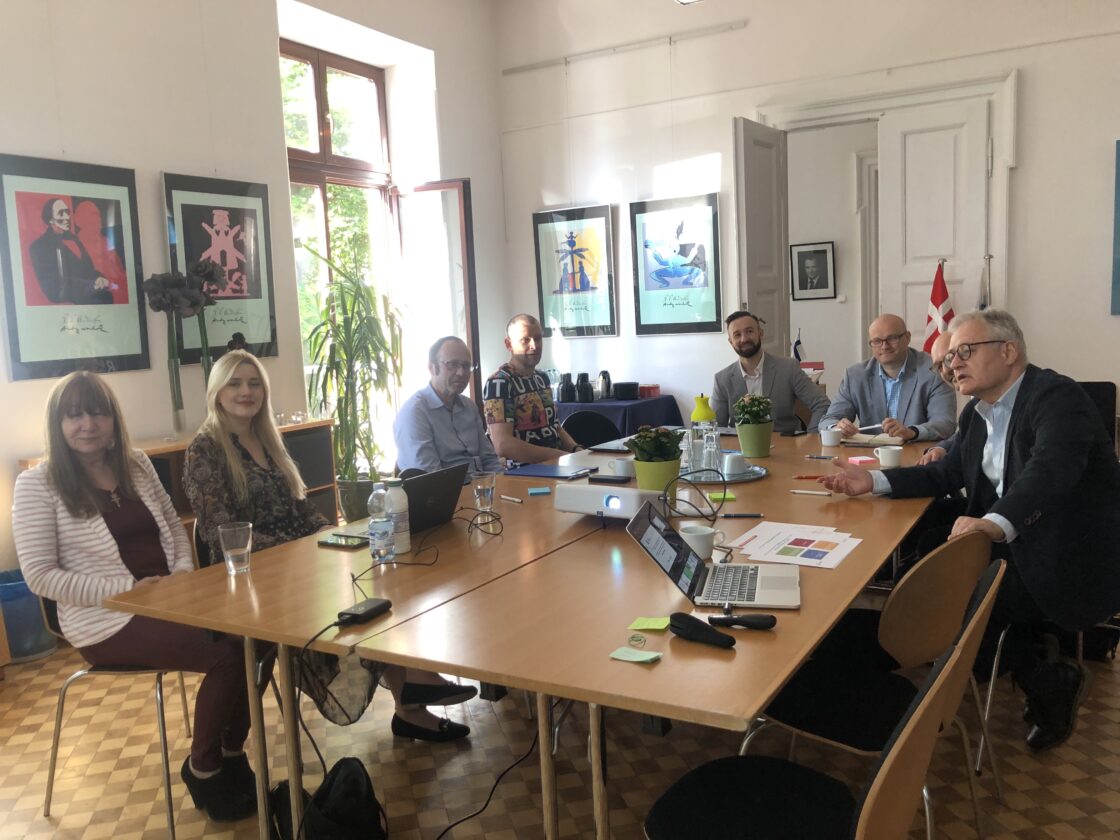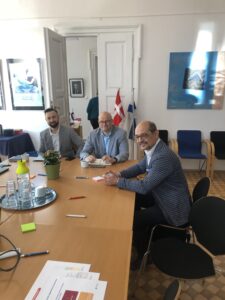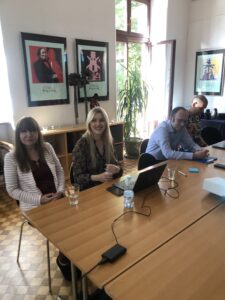Workshop “Sustainability-oriented innovation and entrepreneurship (SOIE)”
On 22.05.2023, SPCleantech conducted a workshop for member companies on “Sustainability-oriented innovation and entrepreneurship (SOIE)”. During this workshop, SPCleantech shared the experience and knowledge developed during the EU project “IMPACT – Building values-based innovation cultures for sustainable business impact”. SPCleantech is a member of a consortium of European universities and companies that have been implementing this EU project for the last 3 years.
Most of the companies and organisations in EU are asked to adopt sustainability goals as part of their mission and innovation management. Many have explicitly adapted these strategies, but few have established inherent practices in their organizational culture and manage innovation based on values of corporate sustainability.Because the IMPACT project unites innovation scholars and practitioners to improve the teaching and coaching of sustainability-oriented innovation and entrepreneurship in higher education institutions and companies around Europe it makes it possible for participants to deliver better teaching materials, educational methods, as well as best practices for use by educators, coaches, managers and facilitators.
During the workshop SPCleantech and its member companies exchanged experiences and knowledge on how to translate sustainability strategies into innovation culture. The discussion during the workshop made us aware of the importance of redefining cultural routines, facilitateting values-based and sustainability-oriented ideation and innovation in the companies, integrating and engaging different stakeholders and promotingvalues-based innovation culture with positive impact. We have also learned that our member companies should concentrate and promote values-based innovation, i.e. innovation and entrepreneurship driven by values, rather than only external opportunities and short-lived interests.
The workshop was practice-based, sustainability-oriented, and result-driven meeting aiming to advance companies capacity and effectiveness in training and teaching sustainability-oriented innovation and entrepreneurship (SOIE). The ambition of the workshop is to drive innovation and entrepreneurship based on values of corporate sustainability, and to facilitate organisation-wide cultural change toward more sustainable innovation processes. With its explicit focus on sustainability, workshop made a unique contribution to effectively translating Europe’s new growth strategy presented in the “Green Deal” into an innovative educational program and business practice.
The workshop was based on methods for teaching and coaching SOIE toolkit, which includes a module on Sustainable Innovation Practices for professional development.
During the workshop following topics were presented for participating companies:
- Cases of good practises: database with concrete examples and best practices for enhancing corporate sustainability through cultural development (e.g. contributing to the SGDs). This database includes internal practises, external stakeholder integration, strategic elaboration and implementation of sustainable business model patterns, and impact management.
- Facilitation methods: “Sustainable Innovation Practices Toolkit” (SUIT I) of methods on how to best involve internal and external stakeholders in innovation-related activities, but also in the collaborative review and redefinition of cultural routines, implicit values, and hidden assumptions. This compendium includes facilitation tools to diagnose and model sustainable business and to collect, aggregate and provide information and knowledge to improve sustainability performance.
- Methods for teaching and coaching SOIE: Building on experiences and insights on previous knowledge alliance projects that IMPACT partner organizations have been involved (such as TACIT and GAMIFY) the project repurposes educational methods and develop new techniques for active debate and learning of sustainability-related facts, challenges and solutions.





